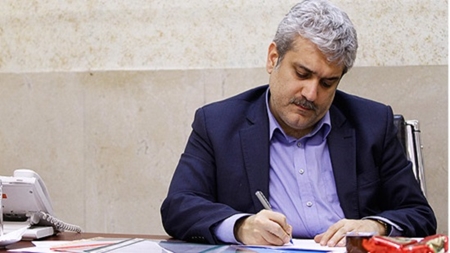Creative Economy, a Bridge to Sustainable Development
Creative Economy, a Bridge to Sustainable Development

*Sorena Sattari
For many years, the concept of sustainable development has been considered by several developing countries. This concept has been created following an increase in the economic and social welfare level of society members, where attention to maintaining a balance in the surrounding resources and creating a proper condition for life of the next generations are put on the agenda. In other words, the concept of sustainable development is a link between environmental, social and economic issues of man.
All developing countries have considered this concept as their driving engine for economic, social and cultural progress, directing the area of activities of industries of counties in various fields in line with sustainable development to realize this goal.
Indicators such as use of clean and renewable resources and industries, directing the indigenous knowledge at the society level, eliminating the essential needs of people, improving the quality of economic growth and its restoring, maintaining sustainability in the population of the country and preventing the immigrations to populated cities are among the goals considered in sustainable development.
Attention and commitment to the industries that meet the above goals should be high on the agenda of major developing societies. The development of the country"s industries with a focus on innovation is one of the issues that will improve the quality of life of the current generation, as well as future generations and the economic growth of a society, in the process of transforming the society"s economy towards an economy based on culture and creativity.
In addition to the development of a sustainable economy and employment creation, innovative and creative industries play a significant role in other areas of sustainable development as a component of the knowledge-based economy. The importance of this issue has been realized worldwide, and most countries have planned their policies on the path of growing of these industries.
According to the World Trade Organization and the United Nations’ definitions, the four categories of: human heritage (arts and tourism), arts and culture (photography and sculpture), mass media (audiovisual and print media), and functional creations such as design and architecture can all be in touch with other industries and technologies, thereby creating an increasing role in the co-creation and growth of various businesses.
The study of sustainable development approaches in the formation and growth of innovative and creative industries shows that in addition to economic growth, its impact on improving social and environmental issues and solving community problems is also important.
The reduction of class distance due to the lack of need for high capital and small business start-ups by these industries, environmental protection and resource conservation, increased employment and entrepreneurship among young people and improved job satisfaction among the audiences of these industries, increased social justice, the growth of dynamic ideas and the preservation of national wealth and culture, culture and national cohesion, and, in general, sustainable economic, cultural and social development are the results of the growth and expansion of creative industries.
In our dear country Iran, with regard to the old civilization and enriched culture, there is a proper foundation for entering into various orientations in the creative and innovative industries, such as handicrafts, tourism, traditional an national architecture and other cultural industries, proper and logical planning and policy-making can develop the creative economy and generate a new and sustainable economic approach in this regard.
*Vice president for science and technology affairs




comment